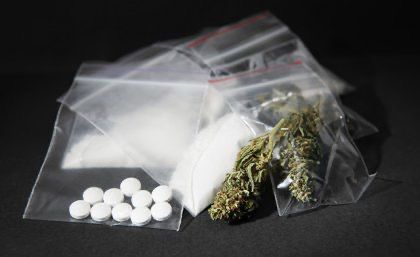NAIROBI – Western donations of old computers, mobile phones and televisions could be toxic “hand-me-downs” posing a hazard to the environment of poor countries, a major UN conference will hear this week.
Delegations from some 120 nations meeting for five days of talks in Kenya will focus on the estimated 20-50 million tonnes of so-called “e-waste” generated globally each year, much of it then shipped to the developing world. “We want developing countries to receive usable items,” Sachiko Kuwabara Yamamoto, head of the Basel Convention which monitors hazardous waste, told a news conference yesterday.”Of course, who pays for this is a big issue,” she said.Western consumers who donate old equipment to poor nations, especially in Africa, could be adding to a multitude of environmental problems there, officials say.One study last year in Nigeria said about 500 containers of second-hand electronics arrived at Lagos seaport every month.But dealers said as much as three-quarters of the PCs, televisions and phones inside were “junk” – so obsolete they could not be repaired.Many were burned at open-air dumps, releasing toxic fumes and leaching chemicals like barium, mercury and brominated flame retardants into surrounding soils.Kenyan Environment Minister Kivutha Kibwana said the same thing was happening at dumps around his capital city Nairobi.”If you go there you will see the other side of these donations,” he said.”And this problem is on the increase.”On the table at this week’s meeting are proposals to make manufacturers – including some of the world’s top computer companies – take more responsibility for their products, from the design stage through the supply chain to final disposal.The UN Environment Programme estimates that some 14 to 20 million PCs are thrown out each year in the United States alone.Activists say if manufacturers had to pay recycling costs, they would create less toxic, longer-life products.As an example of Basel’s work with industry, Yamamoto hailed a four-year partnership with 12 mobile phone manufacturers including Vodafone, Nokia and Sony Ericsson to develop strategies for the recycling and re-use of the more than 600 million phones now sold worldwide every year.As well as “e-waste”, the meeting will also consider what to do with thousands of aircraft and ships expected to go out of service and be scrapped before the end of the decade.It will also focus on strengthening nations’ obligatory reporting on waste shipments thought to be have increased more than four-fold around the world in the last decade.Only about 70 per cent of Basel signatory nations currently file reports.”You can only manage what you can measure,” Yamamoto said.”The reporting we have at the moment is really just the tip of an iceberg.”Nampa-Reuters”We want developing countries to receive usable items,” Sachiko Kuwabara Yamamoto, head of the Basel Convention which monitors hazardous waste, told a news conference yesterday.”Of course, who pays for this is a big issue,” she said.Western consumers who donate old equipment to poor nations, especially in Africa, could be adding to a multitude of environmental problems there, officials say.One study last year in Nigeria said about 500 containers of second-hand electronics arrived at Lagos seaport every month.But dealers said as much as three-quarters of the PCs, televisions and phones inside were “junk” – so obsolete they could not be repaired.Many were burned at open-air dumps, releasing toxic fumes and leaching chemicals like barium, mercury and brominated flame retardants into surrounding soils.Kenyan Environment Minister Kivutha Kibwana said the same thing was happening at dumps around his capital city Nairobi.”If you go there you will see the other side of these donations,” he said.”And this problem is on the increase.”On the table at this week’s meeting are proposals to make manufacturers – including some of the world’s top computer companies – take more responsibility for their products, from the design stage through the supply chain to final disposal.The UN Environment Programme estimates that some 14 to 20 million PCs are thrown out each year in the United States alone.Activists say if manufacturers had to pay recycling costs, they would create less toxic, longer-life products.As an example of Basel’s work with industry, Yamamoto hailed a four-year partnership with 12 mobile phone manufacturers including Vodafone, Nokia and Sony Ericsson to develop strategies for the recycling and re-use of the more than 600 million phones now sold worldwide every year.As well as “e-waste”, the meeting will also consider what to do with thousands of aircraft and ships expected to go out of service and be scrapped before the end of the decade.It will also focus on strengthening nations’ obligatory reporting on waste shipments thought to be have increased more than four-fold around the world in the last decade.Only about 70 per cent of Basel signatory nations currently file reports.”You can only manage what you can measure,” Yamamoto said.”The reporting we have at the moment is really just the tip of an iceberg.”Nampa-Reuters
Stay informed with The Namibian – your source for credible journalism. Get in-depth reporting and opinions for
only N$85 a month. Invest in journalism, invest in democracy –
Subscribe Now!









